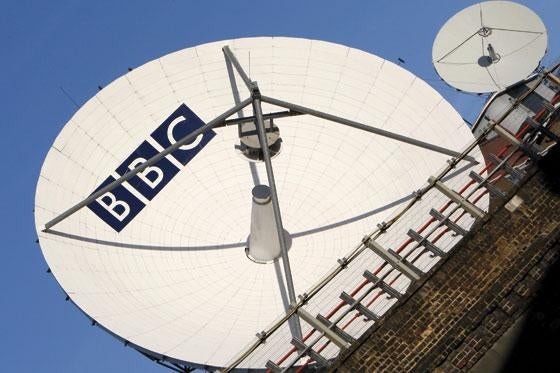
The BBC would become ‘stuffy’ and ‘rather dull’ if it were made to scale back its ambitions and stop appealing to young audiences.
This was the response of BBC chief operating officer Caroline Thomson to a series of opinion pieces published over the past week calling for the broadcaster to rethink its scope and priorities in the wake of the Russell Brand row.
Thomson, who joined the corporation as a trainee journalist in the Seventies, said it was vital that the BBC continued to cater for younger audiences, and defended its ambitions to grow its reach.
Speaking at an event organised by journalism think-tank Polis at the London School of Economics last night, she said: “We should serve all audiences. That’s the way you encourage active citizenship.
“You don’t do it if your brand is a stuffy, elderly-looking brand full of worthy and rather dull programmes.”
She added: “If we withdrew to the model [some critics] want, we would be like the PBS system in the United States, which makes remarkable programmes but in terms of its national impact is tiny.
“By having this broad appeal, the BBC can have a real impact.”
‘Lost touch’
Conservative party leader David Cameron added his voice this week to those calling for the BBC’s scope and ambitions to be reviewed.
Writing in The Sun on Monday, he argued that the broadcaster had “lost touch with the values of people”, “become oversized and over-reached itself” and needed to be “given a clear remit”.
Thomson responded: “To the David Cameron point of have we lost touch with the licence fee-payers, the people who listen to the Russell Brand show pay the licence fee.”
She acknowledged that the BBC faced a “dilemma” with its proposals to launch 65 local video news websites across the UK – and said the corporation needed to be sensitive to the concerns of the wider media.
“Obviously some of the newspaper coverage [of the BBC] is undoubtedly driven by the fact that we are all in competition,” she said.
“We are very big, we are very secure and because of online we are coming more and more into conflict with other traditional media.
“Nobody in the BBC wants us to be in the position where we end up in a one-party state with no one else around. That would be a disaster.”
Working together
The BBC is keen to create more partnerships with media organisations and share resources – a system Thomson described as “turning the BBC inside out”.
The sharing initiative is seen by the corporation as a way of easing the funding issues facing Channel 4 – and a better alternative to giving it a share of the licence fee.
The BBC Trust will publish the findings of its investigation into the local video plan later this month – but the Newspaper Society has voiced concern that the public value test lacks independence and impartiality.
Thomson said she was supportive of the system put in place by the Trust, working with media regulator Ofcom, to investigate what impact the video proposal will have on the wider media.
“There’s a system in place to check our constant imperial ambitions – the ever-onward march,” she said.
‘Monolith’
Polis director Charlie Beckett said the BBC was “paying the price of its successes and others’ failures” – and needed to support its rivals rather than protecting its own interests.
“The BBC has always been something of a contradiction,” he said. “It’s there theoretically to answer for a market failure but it’s always been much bigger than that and had an internal logic of its own.
“In a digital, devolved media world, perhaps we need a broken-up rather than a broken-down BBC.
“Now is the time to redesign the monolith as a genuinely open organisation that facilitates others rather than just protecting itself.”
Email pged@pressgazette.co.uk to point out mistakes, provide story tips or send in a letter for publication on our "Letters Page" blog






